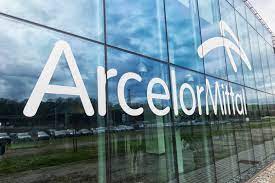Major European steelmaker ArcelorMittal has started operations its Eur200 million ($210.5 million) flagship carbon capture and utilization, or CCU, project at its Ghent steel plant in Belgium, it said Dec. 8.
The Steelanol plant is the first of its kind in the European steel industry, ArcelorMittal said, adding that it was part of the company’s multi-technology strategy to reduce carbon emissions at the Ghent plant.
The project is due to reduce the Ghent plant’s carbon emissions by 125,000 mt/year.
Platts, part of S&P Global Commodity Insights, assessed the price of Tech Carbon Capture credits at $138/mtCO2 Dec. 7. The assessment has been valued consistently above $120/mtCO2 since early 2022.
The CCU project will use carbon recycling technology developed by partner LanzaTech, which includes using biocatalysts to transform carbon-rich waste gases from the steelmaking process and from waste biomass into advanced ethanol, ArcelorMittal said.
The ethanol will then be marketed by ArcelorMittal and LanzaTech for use in the production of a variety of chemical products, including transport fuels, paints, plastics, clothing and perfume, meaning it will also support the decarbonization efforts of the chemical sector, the company said.
At full production, the Steelanol plant will produce 80 million liters of advanced ethanol, which ArcelorMittal said was almost half of the total current advanced ethanol demand for fuel mixing in Belgium.
ArcelorMittal Ghent is also due to soon bring online its Eur35 million Torero project in the first quarter of 2023, which will process sustainable biomass for use as raw material input into the blast furnace, lowering the volume of coal used, the company said.
The Torero project is due to reduce carbon emissions at Ghent by 112,500 mt/year, with the company panning to double its size over the next two years.
The two projects are therefore due to decrease the Ghent plant’s carbon emissions by 350,000 mt/year once both are completed and at full capacity.
“The imperative to accelerate the road to net zero has never been greater,” ArcelorMittal CEO Aditya Mittal said. “Given the scale of the challenge, it’s important to be open to all technology solutions and certainly, at ArcelorMittal, we are open to all technologies that can take steelmaking to near zero.”
ArcelorMittal Europe CEO Geert Van Poelvoorde added that the CCU project was an important step in reaching the company’s Europe-wide target to reduce its steel’s carbon intensity by 35% by 2030 and achieve carbon-neutral steelmaking by 2050.
“A low-carbon European economy needs low-carbon emissions steel to build its renewable energy infrastructure, low-carbon buildings and electric vehicles…Projects such as Steelanol and Torero will help us to meet that demand through our suite of XCarb products,” Van Poelvoorde said.
To achieve its carbon neutrality goals, ArcelorMittal has to date committed to investing $222.5 million, including an investment of $30 million in LanzaTech.
“This is a steel plant which is embracing the latest innovative technologies; which is using sources of circular carbon; which captures and re-uses as many of its waste products as possible, recycling them into something of value; and which is preparing for a future when green hydrogen will remove the need to use any fossil carbon,” ArcelorMittal Executive Chairman Lakskmi Mittal said.
“The high ambitions of ArcelorMittal for sustainability and circularity fit within the climate targets of the Flemish government: a carbon neutral and circular society by 2050, while safeguarding industrial and economic activities in our region,” Flemish Minister-President and Minister of Foreign Affairs, Culture, Digitalisation and Facility Management Jan Jambon said.
— Jacqueline Holman






